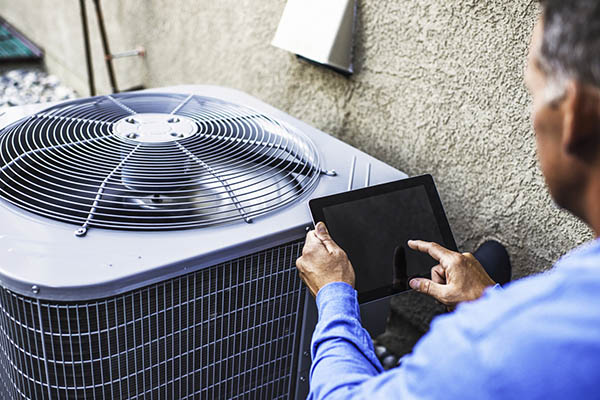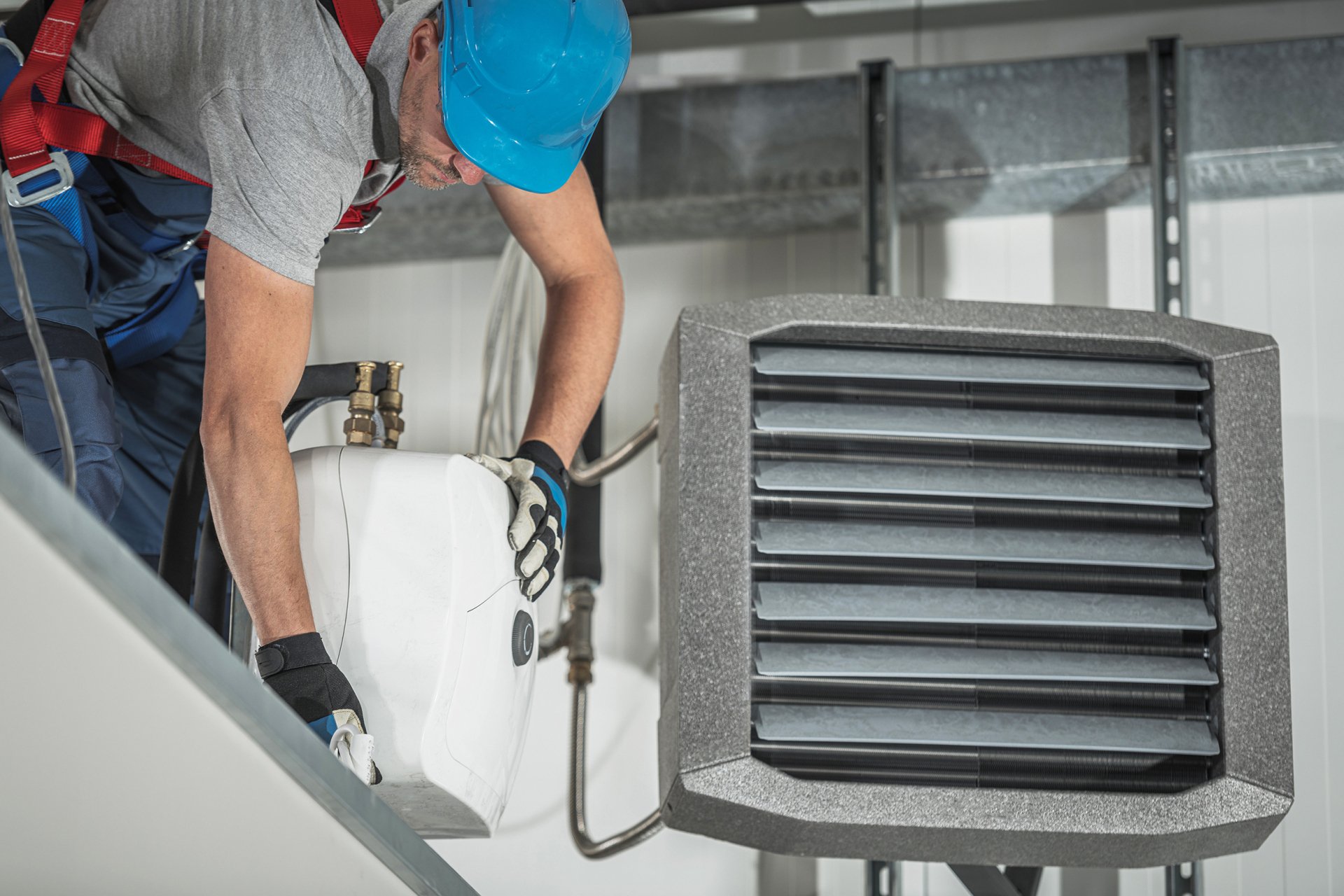Local Insights for Seamless heat pump replacement ooltewah tn
Local Insights for Seamless heat pump replacement ooltewah tn
Blog Article
Choosing In Between a Warmth Pump and Furnace: Secret Considerations for Your Heating And Cooling Requirements
When reviewing home heating options for heating and cooling requires, the decision in between a warm pump and a heater can be intricate. Each system supplies distinctive benefits customized to details climates and energy performance objectives. Comprehending these differences is essential for making an enlightened option. Key elements such as installation prices and ecological influence additionally make complex the option procedure. Which alternative genuinely lines up with one's convenience and sustainability choices? The complying with areas will certainly check out these factors to consider in detail.
Understanding Heat Pumps: How They Function and Their Advantages
While several home owners consider numerous heating options, recognizing exactly how heat pumps function and their advantages can substantially affect their choice. Heatpump operate by moving heat rather than generating it. In the winter, they extract heat from the outside air or ground and move it indoors, while in the summertime, they reverse this procedure, cooling the home by eliminating warmth outside. This double functionality makes them flexible for year-round environment control.One of the key benefits of heatpump is their energy efficiency. They utilize considerably less power compared to traditional furnace, potentially causing reduced energy bills (furnace replacement). In addition, heatpump have a smaller sized carbon footprint, making them an eco friendly choice. They likewise need less maintenance than traditional systems, adding to lasting expense savings. Generally, recognizing the mechanics and advantages of heatpump can assist property owners make notified choices regarding their home heating and cooling down needs
Exploring Furnaces: Kinds, Procedure, and Advantages
Heating systems come in various kinds, consisting of gas, electrical, and oil versions, each with distinct functional systems. Understanding these distinctions is crucial, as they influence effectiveness and home heating performance. In addition, heaters supply countless benefits, such as regular heat output and reliability in colder climates.
Types of Furnaces
Home heating systems can vary considerably in style and operation, with heating systems being a popular option amongst house owners. There are numerous kinds of furnaces, each utilizing various gas resources and innovations. Gas heaters are usual, leveraging gas to produce heat efficiently. Electric furnaces, on the other hand, use electrical resistance to generate warmth, commonly preferred for their simple installation. Oil heaters, while much less usual, are effective in locations with restricted gas gain access to (heat pump service). Additionally, condensing furnaces optimize power performance by recycling and capturing exhaust gases. Each kind runs with a system of warmth exchangers and ductwork to distribute cozy air throughout a home. Comprehending the differences between these furnace kinds is essential for educated HVAC choices
Benefits of Heating systems
For homeowners looking for reputable heat throughout cold months, the benefits of heating systems are considerable. Heating systems supply regular home heating, ensuring even temperature levels throughout the home. They are specifically effective in extreme cool, commonly outperforming heatpump in cold problems. Numerous kinds, including gas, electrical, and oil heating systems, supply adaptability to fulfill varied demands and preferences.Furnaces likewise have a tendency to have reduced initial installment prices compared to warm pumps, making them a more obtainable alternative for many. Their robust style contributes to a longer lifespan, with several units lasting over 15 years with correct upkeep. Furthermore, modern-day heating systems are frequently outfitted with innovative modern technology for enhanced efficiency, which can result in decreased power bills. On the whole, furnaces continue to be a trustworthy choice for effective home heating.

Energy Performance: Comparing Heat Pumps and Furnaces
When contrasting energy performance in between heatpump and furnaces, the Seasonal Energy Effectiveness Ratio (SEER) plays a necessary duty in determining performance. Additionally, an operational cost evaluation discloses the lasting monetary effects of each system. Understanding these variables can direct homeowners in making notified choices regarding their heating options.
Seasonal Power Performance Proportion
Power performance plays an important role in the decision-making procedure in between heatpump and heating systems, specifically when thinking about the Seasonal Power Effectiveness Proportion (SEER) This statistics steps the cooling effectiveness of warm pumps over a whole cooling season, offering a standardized way to assess efficiency. Greater SEER scores indicate greater power efficiency, translating to lower power consumption and minimized energy expenses. On the other hand, heaters are usually assessed making use of the Annual Fuel Utilization Efficiency (AFUE) ranking, which mirrors home heating performance. When contrasting these 2 systems, homeowners must focus on SEER rankings for warmth pumps, as they directly impact total power cost savings and environmental sustainability. A complete understanding of SEER can especially influence the lasting fulfillment and cost-effectiveness of the selected HVAC service.
Operational Cost Analysis
Understanding the functional costs connected with warmth pumps and heaters is crucial for house owners reviewing their choices. Heatpump commonly offer higher power effectiveness, transforming electrical power into warm with marginal waste. This causes reduced month-to-month utility expenses, specifically in moderate environments. Conversely, typical heating systems, especially gas versions, might have lower in advance prices but can incur higher functional expenditures gradually due to sustain prices and effectiveness ratings.Moreover, warm pumps can work as both home heating and cooling down systems, possibly decreasing the demand for separate HVAC units. While preliminary financial investments for heat pumps may be greater, their lasting cost savings in energy efficiency can make them an extra cost-effective option for several households. Careful evaluation of local power rates is essential to figure out the most effective alternative.
Installation Prices: What to Expect for each and every Furnace
Installment prices for heating view unit can differ substantially between heatpump and furnaces, affecting homeowners' choices. Heat pumps typically have greater upfront installment expenses, normally ranging from $3,500 to $8,000, depending upon the system size and complexity of installment. This includes the exterior device, indoor handling system, and essential ductwork modifications. Conversely, heating systems often tend to have reduced initial prices, averaging in between $2,500 and $6,000, which can be appealing for budget-conscious homeowners. However, setup expenditures can increase if considerable ductwork is required.Moreover, the option of fuel type for furnaces-- all-natural gas, propane, or electric-- can likewise affect installation costs. While heatpump supply energy performance, their first investment might discourage some purchasers. Ultimately, evaluating installation expenses together with long-term cost savings and efficiency will certainly help house owners in making notified decisions concerning their heating unit.
Climate Factors To Consider: Which System Does Much Better in Your Area
Just how do climate conditions influence the effectiveness of furnace? The performance of heatpump and heating systems can differ greatly relying on the neighborhood environment. In moderate environments, heat pumps excel by effectively transferring heat from the outside air, making them an energy-saving choice. Nevertheless, their effectiveness decreases in incredibly cold temperature levels, where try this they may struggle to remove enough warm. Alternatively, heating systems, especially gas models, give regular and trustworthy heat regardless of exterior problems, making them preferable in cooler regions.In locations that experience milder winters, heatpump can run effectively year-round, giving both home heating and cooling. On the other hand, areas with harsh wintertimes usually gain from the robustness of heating systems. Inevitably, comprehending the neighborhood climate is important when choosing between a heatpump and a heating system, as it straight impacts their operational efficiency and total efficiency.
Maintenance Requirements: Long-Term Care for Warm Pumps vs. Furnaces
While both heat pumps and heaters need routine upkeep to assure peak efficiency, their certain requirements and care regimens vary significantly. Heaters commonly require less regular focus, with annual evaluations being sufficient to examine for gas leakages, clean filters, and analyze total functionality. Their simpler layout often allows for simple repairs.In comparison, warm pumps require semiannual upkeep as a result of their twin function in cooling and heating. This includes cleansing coils, checking cooling agent degrees, and ensuring that both the indoor and outdoor systems operate at their finest. In addition, heat pump maintenance frequently includes more detailed components, making expert servicing essential.Neglecting maintenance can result in lessened effectiveness and raised power costs for both systems. Inevitably, homeowners need to think about these long-term care requirements when choosing in between a heatpump and a furnace, as positive upkeep can expand the lifespan and performance of either system considerably.
Ecological Effect: Choosing a Sustainable Home Heating Option
The environmental influence of furnace is a critical assessment for house owners seeking sustainable options. Heatpump are typically a lot more energy-efficient than conventional heaters, as they transfer heat instead visit this website of generate it, considerably lowering carbon exhausts. By utilizing renewable resource sources, such as air-source or geothermal heatpump, house owners can even more reduce their eco-friendly footprint.On the various other hand, gas heaters send out greenhouse gases and contribute to air contamination, though they commonly provide higher warmth output. Nonetheless, developments in technology have actually resulted in the advancement of high-efficiency furnaces that reduce emissions.Ultimately, picking a heating system includes evaluating efficiency versus environmental influence. Home owners are urged to review local power sources and rewards for sustainable systems, ensuring a choice that aligns with both personal comfort and environmental duty. The decision influences not just prompt convenience yet additionally long-lasting sustainability and ecological health.
Often Asked Concerns
The Length Of Time Do Warm Pumps and Furnaces Commonly Last?
The lifespan of warmth pumps commonly varies from 15 to 20 years, while furnaces can last between 15 to thirty years. Normal maintenance considerably impacts their durability and efficiency in offering heating solutions.
Can I Make Use Of a Heatpump in Incredibly Cold Climates?
Heatpump can run in extremely cold climates, yet their efficiency reduces as temperature levels decline. In such problems, additional heating resources may be required to keep comfy indoor temperatures and assure peak efficiency.

What Is the Sound Degree of Warm Pumps Versus Furnaces?
The noise levels of heatpump and heaters vary significantly. Normally, heat pumps operate more silently than conventional heating systems, making them more effective for those conscious sound, while heaters may create louder operational sounds throughout heating cycles.
Are Warm Pumps Suitable for Both Heating & Cooling?
Warm pumps are indeed ideal for both heating & cooling (heat pump service). They work by transferring heat, offering effective temperature control year-round, making them a flexible choice for property owners looking for an all-in-one a/c service
What Dimension Heating System Do I Need for My Home?
Determining the proper size heating system for a home needs evaluating elements such as square video, insulation quality, neighborhood environment, and the home's layout. Consulting a professional can ensure a precise analysis and ideal convenience. Warmth pumps generally supply greater energy efficiency, transforming electrical power right into heat with marginal waste. In modest climates, warmth pumps stand out by effectively moving warm from the outside air, making them an energy-saving alternative. Conversely, furnaces, especially gas designs, supply trustworthy and regular warmth regardless of outdoor conditions, making them preferable in cooler regions.In locations that experience milder winters, warmth pumps can operate effectively year-round, offering both heating and air conditioning. Warmth pumps are generally more energy-efficient than traditional furnaces, as they move heat rather than produce it, greatly decreasing carbon emissions. By utilizing eco-friendly power sources, such as air-source or geothermal warm pumps, house owners can additionally reduce their eco-friendly footprint.On the various other hand, natural gas heaters produce greenhouse gases and contribute to air pollution, though they usually supply higher heat result.
Report this page